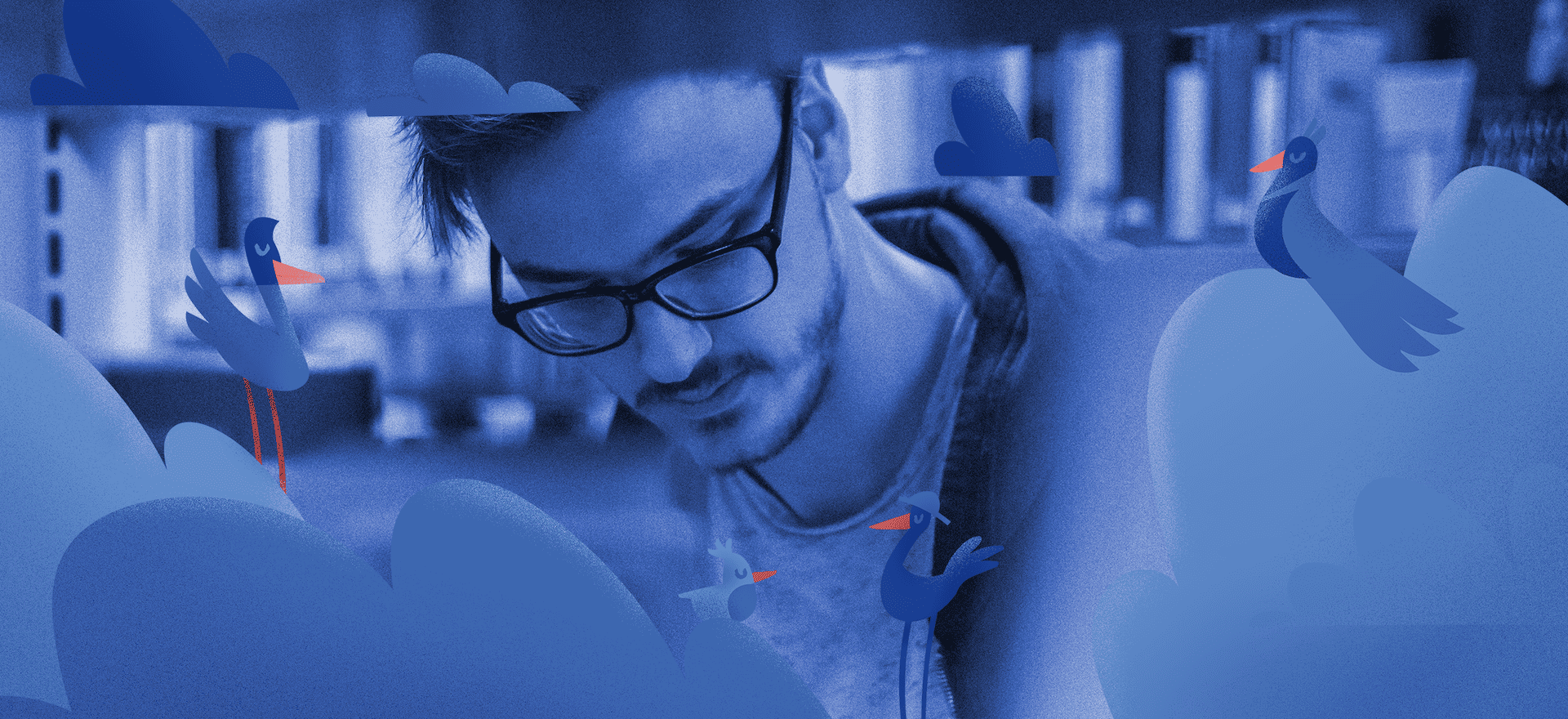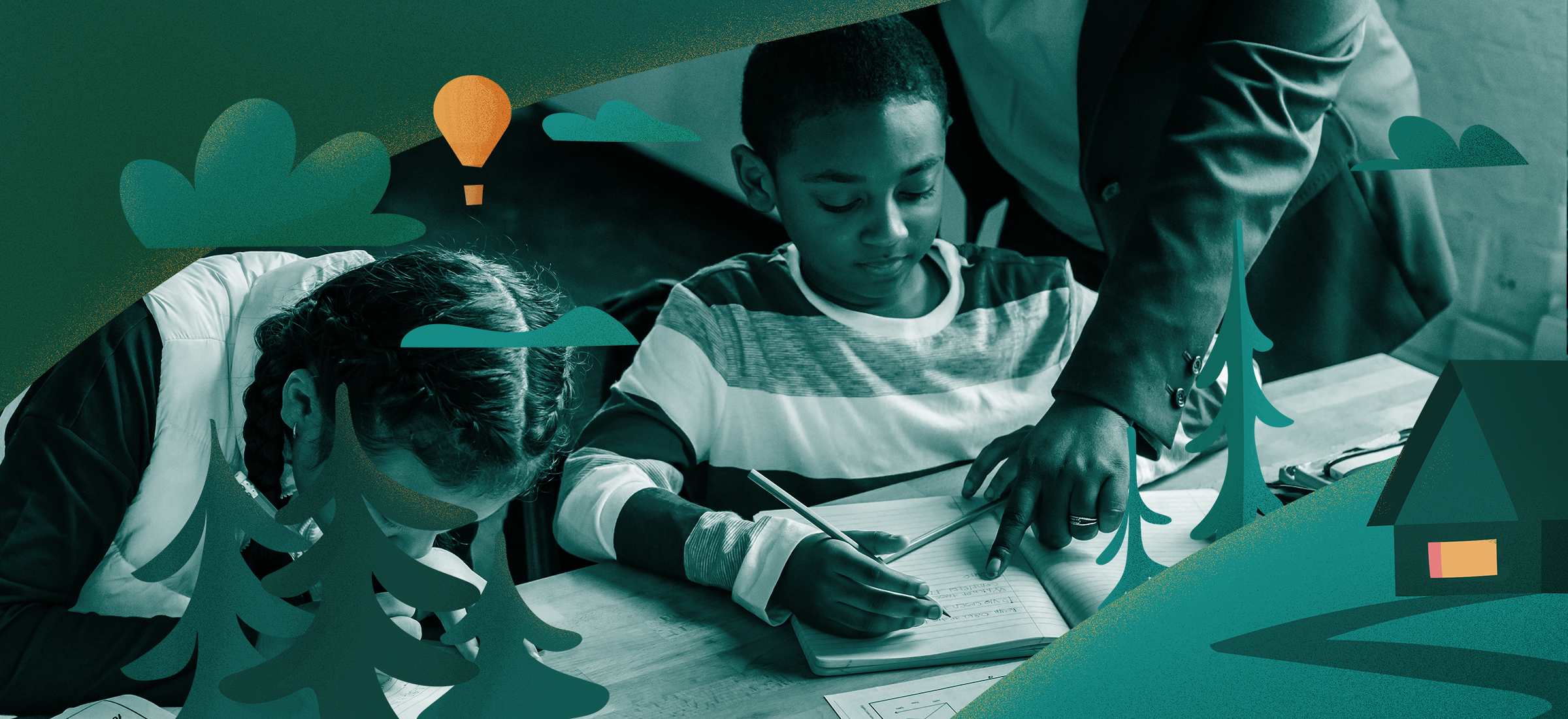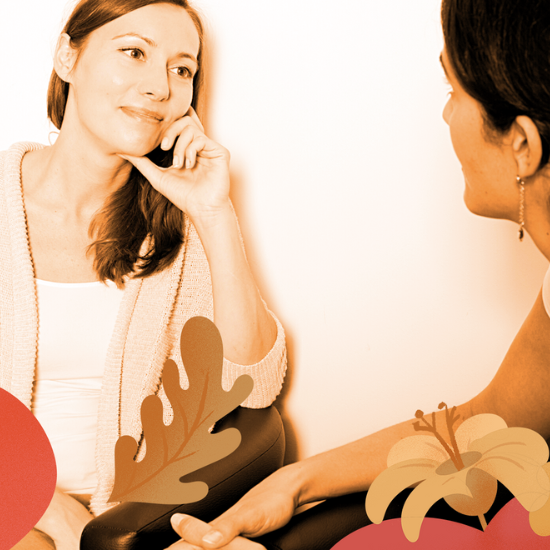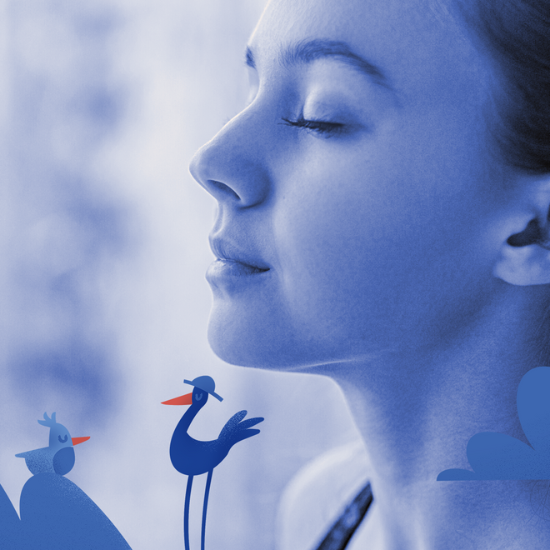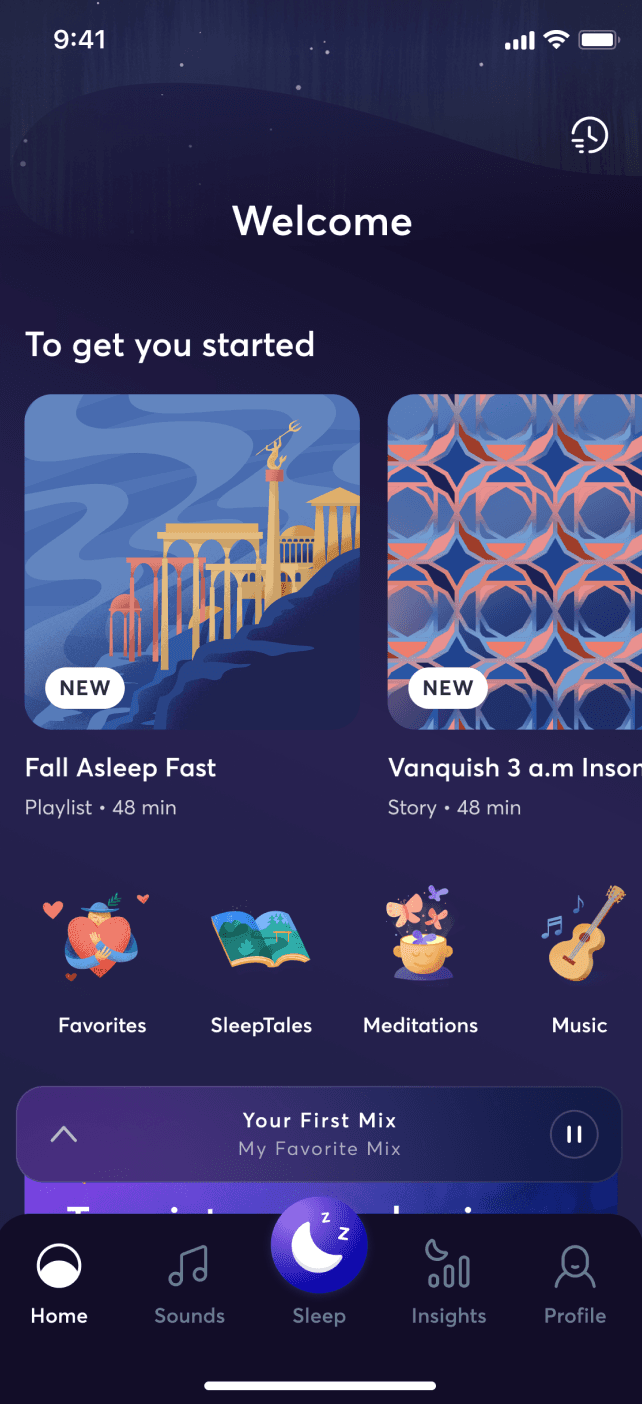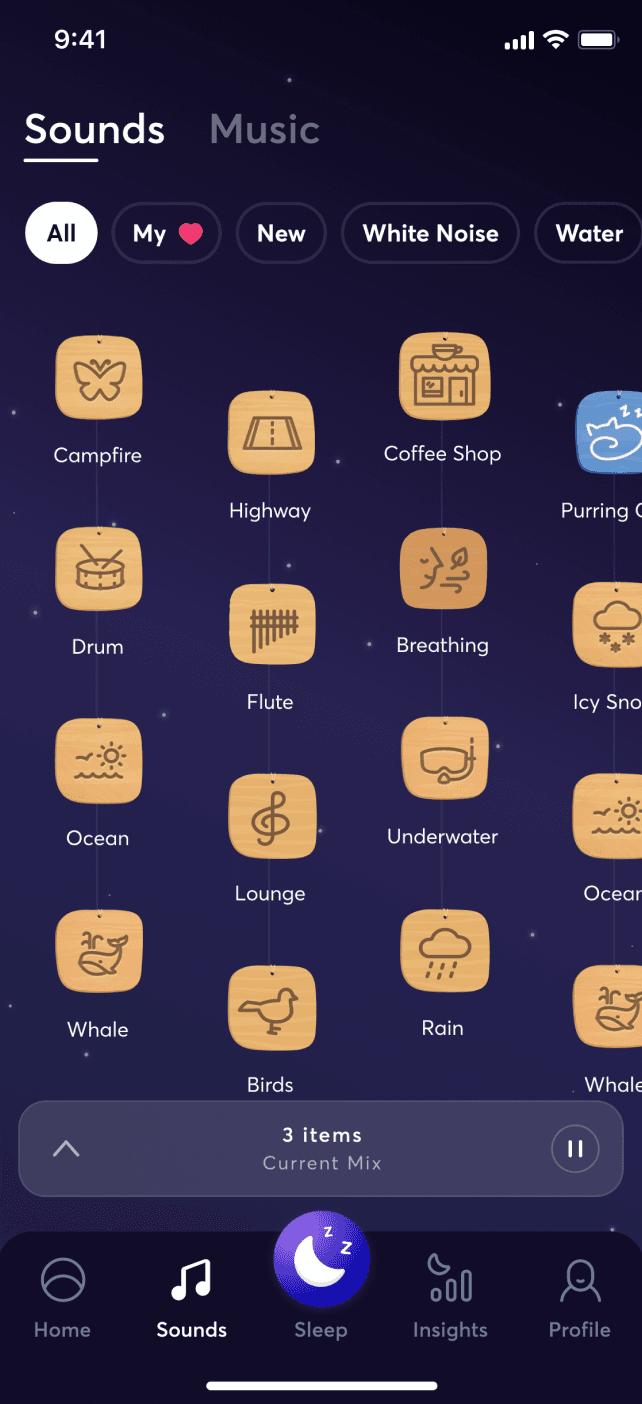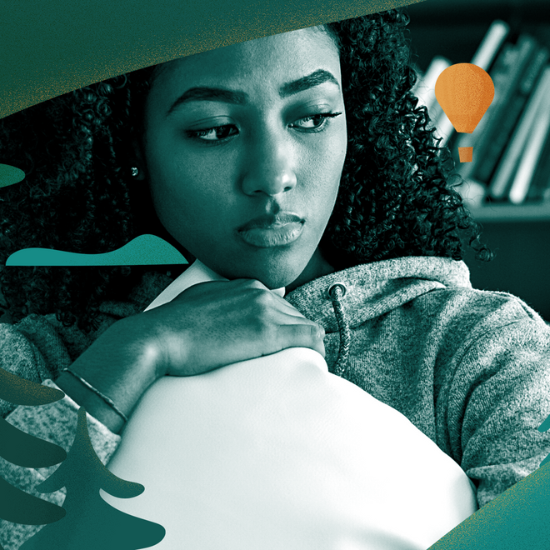
Meditation for Anxiety
Anxiety is a mental health condition that causes the body to react to certain situations with increased levels of fear. Over 19% of adults in America and 7% of children suffer from anxiety. While anxiety pertains to mental health, the severity of the condition can cause physical symptoms.
People with anxiety disorder have different treatment options, but meditation has become popular. Individuals may shy away from meditation because it appears more complex than it is. Meditation is a simple practice that anyone can do at any time.
This article will give you the necessary guidance if you’re looking for ways to decrease anxiety using meditation.
What is meditation?
Meditation is a practice that has been used for thousands of years. The earliest form of meditation dates back to around 5000 BCE. The word meditation comes from the Latin meditatum, meaning ‘to ponder.’
Through meditation, people can establish a deeper connection with their bodies by willfully directing their thoughts. For example, if you’re trying to calm down in a stressful situation, focusing your mind on thoughts that will relax you and lower your blood pressure is considered meditation.
Meditation consists of focusing and clearing your mind using a specific routine. Different forms of meditation exist around the world. As time goes on, different types of meditation techniques have been developed. They each carry benefits and can be used for various purposes.
Do you have to be religious to meditate?
Meditation is typically associated with Buddhism, but nearly every religion has a meditative aspect, including Christianity, Hinduism, Judaism, and Islam.
Although meditation was originally used for religious purposes, many people now use it outside of religious or spiritual beliefs. Because meditation can help connect the mind and body and also has health benefits, there doesn’t have to be a religious motive behind it.
Meditation can be considered daily exercising, eating nutritious foods, and sleeping. All of them are things that improve your overall mental and physical health.
How Meditation Reduces Anxiety
Anxiety is caused by increased levels of stress and traumatic life experiences. It can be triggered by different things, depending on the cause. For example, a driver who had a previous car accident may be triggered when they have to drive again. The fear of getting into another bad accident can increase anxiety at that moment.
Experiencing high-stress levels also increases anxiety. Anxiety is your body’s way of letting you know it’s experiencing too much stress.
The human brain has billions of neurons that are connected to form different areas of the brain. Every neuron forms a network, and each network has a specific duty. Various research studies show that people who meditate regularly have a different brain structure.
These brain structures include denser tissues or larger areas of the brain. This is most commonly present when the neurons have a strong connection. These brain structures are good signs of a healthy brain. People who meditate regularly may also find it easier to deal with emotions of grief, anger, or fear.
Controlling anxiety:
Both anxiety and stress are closely tied and can be simultaneously reduced with meditation. One study showed that 8 weeks of meditation helped decrease generalized anxiety disorder.
Meditation can also help with different triggers. Some people suffer from workplace anxiety. This is common while collaborating with others in the workplace or working on a big project. In a similar study, individuals who had workplace anxiety saw a drastic decrease after practicing meditation for 8 weeks. They also reported less job strain and positive mindsets while working.
Scientists say that the effect size of meditation is equivalent to that of antidepressants at .3. This is because meditation is more than just quietly sitting and breathing. Symptoms that are caused by things like anxiety and depression can harm the body. When you use brain exercises like meditation, you are working against those negative effects.
Reducing stress:
Your body’s response to stress, known as the relaxation response, prepares you for how you should react in different situations. This is a good response, but when your body sees that response for prolonged periods, it could cause physical and psychological damage. Stressed individuals will have high levels of cortisol. This is the hormone responsible for causing stress.
Meditation affects the body the same way stress does by triggering the body’s emotional response. When you meditate, you can bring your body back to a calm state. This helps repair the damage caused by stress or anxiety. Meditation is proven to reduce cortisol levels in the body.


Other benefits of meditation:
While meditation is great for people who are stressed, anxious, or fighting addiction, there are many other benefits of meditation outside of these. Adding meditation to your daily routine can also help with some of the following:
Lowers Blood Pressure
Throughout the day, your body is impacted by different things. These physical and mental encounters and how you handle them can raise your blood pressure. Meditation is known to lower high blood pressure.
Scientists are still trying to find a direct correlation between meditation and how it lowers hypertension. Some studies suggest that it’s due to the production of enzymes that reduce blood pressure.
Improves Memory
Multiple studies performed by neurologists have proved that there is a link between daily meditation and enhanced memory. Meditation helps strengthen the cerebral cortex, the part of the brain responsible for learning and memory.
When meditating, blood flow to the brain is increased. This strengthens the blood vessels in the cerebral cortex, improving memory. People who want to see an improvement in their memory and/or learning should try to practice meditation for up to 20 minutes a day.
Helps Fight Addiction
People fighting addictions will have withdrawals, making it easy for them to relapse. Withdrawal symptoms may include increased anxiety, upset stomach, chronic pain, sweating, depression, hallucinations, and more. To avoid this, people fighting addiction should try meditating for a few minutes daily.
Practicing meditation increases a sense of calm. This also helps avoid relapsing by managing the things that may trigger their addiction.
Improves Sleep Problems
People suffering from sleep problems like sleep deprivation or insomnia can benefit from daily meditation. The number one cause of difficulty sleeping is the mind having a hard time relaxing. People with sleep problems may be troubled about something that happened during the day or anxious about the next.
A meditation session before bed can help clear your mind of anxious thoughts and prepare you for rest. Meditation also increases the production of melatonin. Melatonin isn’t just a vitamin that people can take to aid sleep—it’s produced in the brain. With increased levels of melatonin, people can receive quality sleep.
Best Meditation Practice for Anxiety
There are many meditation techniques to choose from. Finding the best option to decrease stress may be a handful. It’s important to understand that there are common benefits that each meditation technique shares. These benefits include, but are not limited to:
- Relaxed mind
- Stress reduction
- Improvement in mental and physical well-being
- Mental clarity
- Improved mood
While there are common benefits, you can get even more specific about the type of meditation practice you choose. Here are some of the best techniques for anxiety:
Guided Meditation
The meaning of this meditation technique is in the name. During this meditation technique, someone else guides you through the meditation process. Meditation guides will help others produce better mental imagery. This is a great option for beginners of meditation.
While meditating, you’ll be instructed to relax certain muscles and perform breathing exercises, like abdominal breathing. After the body is relaxed, you’re led through mental images, visualizations, and mantras. People with anxiety may imagine themselves being free of fear. This will help clear their minds of anxious thoughts.
Benefits of being guided :
Meditation is about focusing the mind on self-awareness and the present rather than being focused on the past or things to come. It’s easy for the mind to wander off, especially for people with anxiety or new to meditation. This is why having a guide is beneficial for remaining focused and centered.
How to do guided meditation:
This can be done in a variety of ways. You can attend in person and listen to recordings or podcasts, online streaming services, websites, or apps. The online options to choose from are endless.
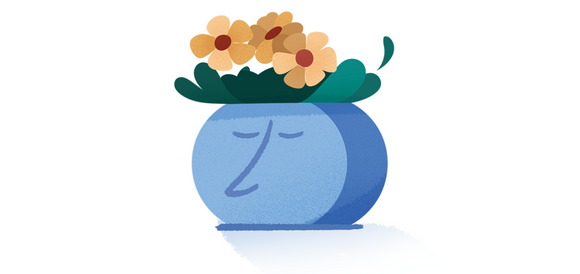

Mindfulness Meditation
Mindfulness is a mental state achieved when you focus on the present moment. During meditation, an individual will kindly welcome moment-to-moment thoughts so they can understand their feelings towards them. You can get better at mindfulness by practicing it daily.
When practicing mindfulness, you see things from a nonjudgemental perspective. Mindfulness meditation has been practiced for thousands of years in Southeast Asia. It can now be practiced almost anywhere. You can practice mindfulness at a restaurant as you take note of the surroundings and smell different aromas.
Most forms of meditation include some aspect of mindfulness.
Mindfulness-Based Cognitive Therapy
Mindfulness-based cognitive therapy (MBCT) is a form of cognitive therapy that incorporates mindfulness practices. It was created to help people who suffer from extreme depression.
The therapist will bring the client to a focused state. The client’s mind is kept from negative thoughts and emotions during this time. The practice of MBCT comes from John Kabat-Zinn, a professor of medicine and creator of mindfulness-based stress reduction techniques. This technique is frequently used during meditation and yoga sessions.
Benefits of Mindfulness-Based Cognitive Therapy
MBCT has been proven to be effective in people with major depressive disorder. Although it was initially created to keep people with depression from relapsing, MBCT can also be beneficial to people with:
- Bipolar disorder
- Addictions
- Generalized anxiety disorders
How to Practice Mindfulness Meditation
Similar to other types of meditation techniques, when practicing mindfulness meditation, you should:
Take a seat.
Choose a quiet and comfortable place to sit. You want to make sure the place you choose to meditate is free of distractions. This is a good time to set your timer. Research suggests that people should meditate for at least 20 minutes a day. Beginners can start with 5 minutes and increase with experience.
Focus on your breathing.
Relax your body and take deep breaths. At this time, bring your attention to your breaths. For example, focus on breathing in and out of your nose and belly breathing.
Accept your wandering mind.
It’s normal for thoughts to come to mind during meditation. Accept those thoughts and feelings towards them, then bring your attention back to breathing. The goal is to become less reactive to your thoughts by not focusing on them for too long.
Loving-Kindness Meditation
Loving-kindness meditation, also known as metta meditation, is another form of meditation that is good for treating anxiety. This is a good meditation technique for people who struggle with interpersonal anxiety or self-guilt.
This form of meditation is known to boost overall well-being and reduce stress. People who practice this technique receive and give increased amounts of love. Time and consistency can make it easier to forgive, connect with others, and increase self-love.
Loving-kindness meditation uses the repetition of phrases that evoke positive feelings:
- You are happy.
- You are loved.
- You experience good things every day.
Benefits of Metta Meditation
Practicing metta meditation will have similar benefits to other meditation techniques. One study published by the Harvard Review of Psychology concluded that metta meditation might help treat chronic pain and borderline personality disorders. More evidence is needed to fully substantiate these claims.
Other benefits include treatment for:
- Social anxiety disorder
- Anger issues
- Marital conflict
While also:
- Enhancing empathy and compassion
- Reducing self-criticism and negative thoughts
How to Do Loving-Kindness Meditation
- Sit quietly in a position that is free from distractions and unwanted noise.
- Begin to focus by closing your eyes, relaxing your muscles, and deep breathing for a few minutes.
- Think of three phrases you would like to focus on during meditation. You can direct these phrases to yourself or someone else. During this time, note how you feel about the person the phrases are directed towards.
- Repeat for however long you want or until you feel a sense of love and compassion.
Body Scan Meditation
Anxiety affects not only mental but physical health as well. Some of the physical symptoms of anxiety include but are not limited to:
- Chills
- Upset stomach
- Tension headaches
- Muscle aches and tension
- Lightheadedness
- Loss of appetite
- Tiredness
- Shortness of breath
Body scan meditation, sometimes called progressive relaxation, helps scan the body of these physical sensations so they can be released. During the session, you start at one end of the body and work your way to the other. For example, most practitioners start at the feet and end with the head.
While you’re meditating, you should stop on each area of the body and focus on it. Normally, you are scanning for pain, tension, or discomfort. If you realize any of these sensations, take note of how they make you feel, let go of the judgment, and accept it. Acceptance is one of the most important aspects of releasing things.
One of the main purposes of body scans is to familiarize yourself with how these sensations make you feel and see what you can do to rid yourself of them. If you normally get anxiety before a presentation, those symptoms won’t impact you in the future if you acknowledge them through meditation.
Some types of body scans require people to tense their body up before releasing it physically. Others may move you to imagine a rushing wave and release your tension with it. While meditating, try to focus on each area for no less than 30 seconds.
Benefits of Scanning
Most meditation helps improve mental health. With progressive relaxation, you can receive mental and physical health benefits. Here are some of the most common:
Lowers effects of anxiety.
The body may carry tension from panic attacks and other physical factors of anxiety. This type of meditation can help relieve the body of these sensations while calming your mind down to prevent future occurrences.
Decreases stress.
One study showed that people who scanned their bodies for 8 weeks saw decreased cortisol levels. High levels of cortisol can affect your physical health with things like:
- Stress
- Weight gain
- Poor sleep
- Difficulty focusing
- Weak immune health
- Hypertension
Lessen chronic pain.
Any pain that is experienced for more than 3 months is considered chronic. Chronic pain affects people physically and mentally. These individuals usually have higher levels of depressed thoughts and anxiety than those who don’t have chronic pain.
While it may not eliminate the pain, it helps you change your outlook on the problem and lessens the possibility of mental health issues.
Promotes calmness and relaxation.
When you focus on your breathing and body, you activate the parasympathetic nervous system—the part of the nervous system responsible for relaxation. This is why some people perform body scans in their beds before sleeping to relax them.


Transcendental Meditation
Most meditation techniques focus on clearing your mind and bringing your attention back to the moment when it wanders off. With transcendental meditation, you instead focus on a single word or phrase that is silently repeated in your head. In this form of meditation, there’s no need for visualization or imagery.
What you repeat is based on your characteristics and other complex factors. Your instructor typically chooses the repetitive word. This mantra is a single word or sounds like “om,” which you may have heard in certain meditation sessions.
This technique allows the mind and body to transcend while alert and relaxed. The traditional practice of TM should be taught within 4 days by a certified practitioner.
Proof of Benefits
TM has been associated with improving mental and physical health. Some of the frequently-discussed benefits include effects on:
- Brain function
- Heart health
- Stress management
- Anxiety relief
A 2016 study found that inmates who practiced TM decreased trauma, anxiety, and depression symptoms.
Benefits of TM are also usually seen in a short period. One research study showed that people could see changes as early as 2 weeks into the practice after doing it twice a day for 15 minutes. Scientists suggest that individuals continue this practice for at least 3 months to see a larger percentage decrease in symptoms.
Tai Chi
Not all meditation has to be practiced while sitting down in the same position for extended times. If you’re looking for a good form of meditation that requires movement and has mental benefits, tai chi is the perfect option.
This meditation technique was a Chinese tradition created as a form of self-defense or martial arts. It has now become an exercise and meditation technique, sometimes called meditation in motion. These movements are done slowly and gracefully while paying attention to the body and breathing. Each movement flows into the next one without pausing.
Who can do tai chi?
People of all ages can perform this technique because it is low impact and has less strain on the muscles. It’s great for older people who may not be able to exercise. Other moving meditation techniques like yoga can feel a bit strenuous if you are a beginner.
This moving meditation is also cost-effective, making it available to more people. It can also be practiced anywhere and doesn’t require equipment. You could look for group classes or do it by yourself outdoors or indoors.
While it is typically safe, certain people should consult their doctor if they are pregnant or have:
- Joint problems
- Back pain
- Fractures
- Osteoporosis
Your doctor can enlighten you on positions to avoid while meditating.
Benefits
When practiced correctly and consistently, this form of meditation carries many benefits. Studies show these are the most common effects:
Reduce anxiety and stress:
One study showed that this technique had the same effect on stress-related anxiety as regular exercise. The focused breathing and meditation may be the reason for the decreased stress levels. In addition, moving the body into positions causes the individual to pay attention to balancing and moving rather than anxious feelings.
Improves sleep quality:
People who have difficulty falling asleep usually suffer from anxiety, depression, or stress. This meditation helps these mental health problems while attacking its effects on the body, like lack of sleep.
Promotes weight loss:
It’s no surprise that this form of meditation can support weight loss, as it used to be considered a form of martial arts. It doesn’t take strenuous movements for the body to consider something as exercise. Some people reported seeing small improvements in their weight with no additional lifestyle changes.
Reduces chronic pain:
The weight shifting that occurs during this practice strengthens different muscles. For example, people experiencing knee pain may increase strength in their hamstrings to support the knee. The meditation also improves flexibility and balance that may have been lost due to pain.


